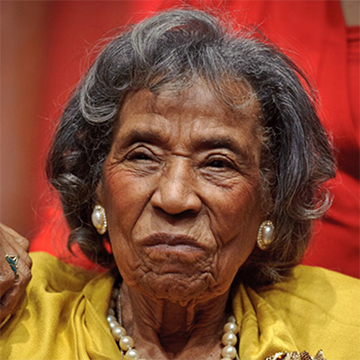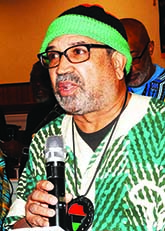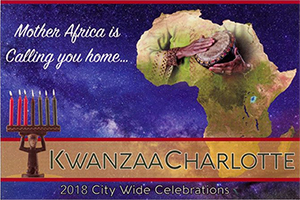
Remembering Amelia Platts Boynton Robinson 55 Years After Bloody Sunday

Photo via Biography.com
By Makheru Bradley

Amelia Platts was born in Savannah Georgia in 1911 to George Platts and Anna Elizabeth Hicks Platts. Her parents taught her and her siblings four principles of life: daily praying, always helping and showing compassion for others, standing up for the morally right, and becoming economically independent.
At age 16, Amelia enrolled in Tuskegee Institute to study home economics. In addition to her studies she was a member of the track team and she became the captain of the women’s basketball team.
After graduation Platts moved to Selma, Alabama and began her career as a teacher and leader in Dallas County. She became a Demonstration Agent for the U.S. Department of Agriculture. She taught home economics and employed a technique she learned from the famed scientist Dr. George Washington Carver, the “Moveable School” -- giving instructions and demonstrations in farming and homemaking in remote Alabama farming communities and homes.
Per Biography.com: In 1930, she met her co-worker, Dallas County extension agent Samuel Boynton. The two had in common their impassioned desire to better the lives of African American members of their community, particularly sharecroppers. The couple married in 1936 and had two sons, Bill Jr. and Bruce Carver. Over the next three decades, Amelia and Samuel collectively worked toward achieving voting, property and education rights for poor African Americans of Alabama's farm country.
Amelia registered to vote in 1932 by mastering the myriad of tests white supremacists designed to prevent Black people from voting. Along with Rev. Frederick Reece, Amelia established the Dallas County Voters League in 1933 to help excluded Black citizens become registered voters, despite the ever present threat of the Ku Klux Klan.
In 1955, before the courageous act of Mrs. Rosa Parks in Montgomery, Amelia organized a boycott by Blacks in Alabama after a Selma woman died from being dragged by a city bus.
In 1964, Amelia became the first Black woman to seek a seat in the US Congress in Alabama. She received 11 percent of the primary vote in a district where only five percent of Blacks could vote.
As the Civil Rights Movement gained momentum Amelia and Sam Boynton allowed SCLC to use their offices for their headquarters, where sit-ins, marches, and protests were organized. The Boynton’s would also make their spaces available to the emerging young activists of the movement – the Student Nonviolent Coordinating Committee (SNCC).
Samuel Boynton passed in 1963. Stokely Carmichael noted: The entire Boynton family were warriors. The plaintiff in the Supreme Court case Boynton vs Virginia, which integrated interstate bus travel, was her son. Her husband also had been a highly respected leader, who managed-with the ingenuity of his widow-to continue the fight literally from his grave… the memorial service for Mr. Sam Boynton said quite prominently, ‘Memorial Service, Voting Workshop and Rally.”
Bloody Sunday March 7, 1965 and the Voting Rights Act
As the struggle escalated in Selma, Amelia’s impact was felt everywhere. She became a target of the white supremacists who were attempting to prevent Blacks from registering to vote. One photo from that struggle shows Amelia being attacked by the notoriously brutal Sheriff Jim Clark.
Amelia helped to plan the Selma to Montgomery march that became internationally known as “Bloody Sunday,” on March 7, 1965. As the march crossed the Edmund Pettus Bridge, Amelia was teargassed and beaten by Alabama state troopers. Knocked unconscious, the then 53-year-old Amelia was presumed to be dead until other marchers braved the white supremacists and hauled her away.
After Amelia's release from the hospital, she met with Dr. Martin L. King and 15 US Congressmen to produce the first draft of the Voting Rights Act. When President Lyndon Johnsons signed the Act into law on August 6, 1965, Amelia joined Dr. King and other Civil Rights activists in the White House for that historic event.
Life After Bloody Sunday
From Biography.com: Boynton eventually remarried, this time to former Tuskegee classmate James Robinson, and moved back to Tuskegee. When Robinson died in 1988, Boynton stayed in Tuskegee. Serving as vice chair of the Schiller Institute, she remained active in promoting civil and human rights.
On the 50th Anniversary of Bloody Sunday, in 2015, Amelia was wheeled across the Edmund Pettus Bridge holding hands with President Barack Obama. This courageous and committed Civil Rights heroine joined the realm of the ancestors on August 26, 2015, after living 104 years.
The need for the courage and spirit of Mrs. Boynton Robinson in 2020
The annual symbolic Edmund Pettus Bridge Crossing took place this year on March 1 in Selma. As expected several presidential candidates turned up for photo ops, with no intentions of actually addressing the material conditions of Black people living in poverty in Alabama. Democrat presidential candidates compete for the southern Black vote during their primaries, but these voters are all but forgotten during the presidential election and afterwards.
In Dallas County, where Selma is located 39.1 percent of African Americans are living in poverty. More than 43 percent of the county’s children are living in poverty while female-headed households with children are facing a poverty rate of 59.5 percent.
The poverty rate for Afrikan Americans in some of Alabama’s other Black Belt counties, such as Barbour, Bullock, Greene, Macon, Perry, Sumter and Wilcox is higher than in Dallas County. The sad fact of the matter is, the grassroots Black people of the Deep South, who invested the most in the struggle to get civil and voting rights, have benefited the least. Selma and the Black Belt of Alabama are prime examples of that tragedy.
Thus, there is a critical need for the masses of Afrikan American people to absorb the indomitable spirit and courage of Amelia Platts Boynton Robinson and emulate her high achievements in a new struggle for power.
EDITORS NOTE: This is an update to our 2018 article on Amelia Platts fight for rights to emphasize gaining her courage in 2020.
For more from the author, follow his blog Makheru Speaks.

